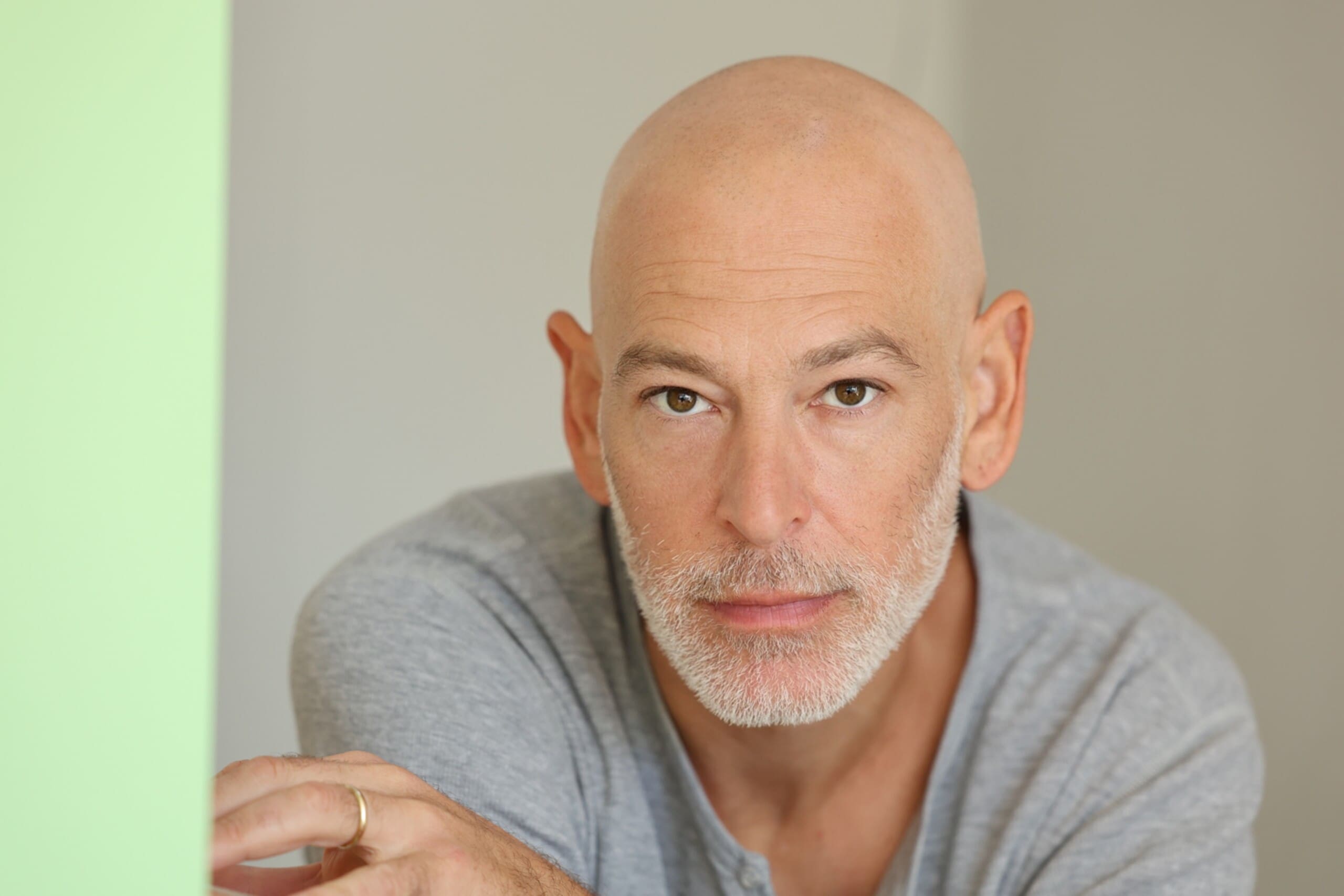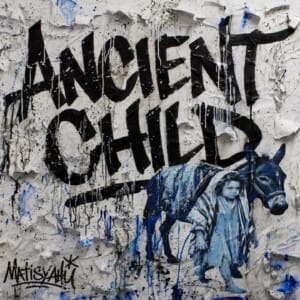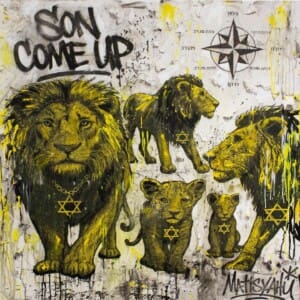
Matisyahu, after a decades-long career, is still finding inspiration to create new music. His new album, Ancient Child, marks his eighth studio record and a spiritual rekindling for the singer/songwriter and his relationship with faith.
Judaism has always been an essential part of Matisyahu’s life, whether it is guiding his artistry or a part of his personal journey. Ancient Child finds him reconnecting with his roots in a way that feels both deeply personal and newly awakened, all while sharing his journey with his audience.
I had the opportunity to speak with Matisyahu about Ancient Child and how passion, family, and faith all influenced his current creative era.
With this being your 8th studio album, what is inspiring you to write and create music this time around, and even compared to the early stages when you started writing?
I think, honestly, it’s one of the few things that stays the same. Many things change and fluctuate over the course of your career; even before when music is just a dream and not yet a reality. In those early stages, for myself, even when I was performing on street corners, open mic nights, or just by myself in a room, the thing that drove me to write was the music itself. I used to play over instrumental beats. It wasn’t YouTube back then; you had to go find cassette tapes that had stripped away the vocals. You would collect these tapes, and then the tapes would be the inspiration that inspired me to write.
Obviously, [I found inspiration through] whatever my life experiences I was going through or life lessons I was learning, mixed with things I was maybe reading, and all that would create lyrical material, but the actual inspiration to sit down and start flowing over a beat. That came from the music itself and to this day it is the very same way. If I hear something that inspires me, I’ll write it. If something just hits the right way, immediately, it is like turning on a faucet, I get all kinds of creative ideas, and I want to write them.
Your music in the past years had a focus on your personal life, but “Ancient Child is a strong return to his love for Judaism and the deep existential quest to find universal meaning in the darkness.” Can you expand more on why you decided to take this shift with your music?
Actually, it was something that happened organically after October 7th. As you know, I have been deeply religious for about a decade, and at some point, I felt like it wasn’t my truth anymore, so I let go of it. At that point in my life, it wasn’t that I wasn’t connected to Judaism; it just wasn’t something that was that important to me. I was raising my kids, in a relationship, paying taxes, and doing all these different things that a middle-aged person is doing, all while still trying to be creative and write music. The spiritual journey of Judaism was not my top priority anymore after it had been for many, many years when I started as Matisyahu.
Then, honestly, after October 7th, something switched inside me. It was a mentality as if you played sports, for example. I played Ice hockey growing up, and it was as if someone were to attack my goalie and something inside me would fire up [to fight back]. So once I started to feel that [after October 7th], I started to lean back into that and wanted to feel more connected to Judaism, and thank God, I know how because I spent a long time doing it. Now I have to sort through it and find out which I accept, which parts I don’t accept for my own self and my own sanity where I am holding my religious beliefs. It feels to me as though there has been a shift, a lot of that stuff that can be seen as a distraction when you are wanting to connect to God and to your roots has kind of gone away for me. I have been able to get back into it in a way that I feel is healthy and more mature. It is authentic to me, and it feels real, and it’s kind of what I was looking for. It wasn’t something I was necessarily looking for, but it kind of happened in reaction and is where I’m at.
This album features a few guest artists, and I was wondering why you decided to feature these guests and what listeners can expect from them.
Well, there are only three guests on this album. Two of them are my oldest sons, who are also releasing music. My oldest son is Laivy, and then my next son after that is Duvbear. One of them is featured on a song called “Son Come Up,” which is literally about my sons coming up in music. Duvbear is on two songs called “Rockets” and “Rockin Tempos.” The third feature is an artist called BLP Kosher, who you may have heard of. He is a rapper from Florida, and he is Jewish. He represents his Judaism in a really unique way, like he has a crazy blinged-out dreidel around his neck. He came to my attention when my son showed me his music, and I thought his music was cool, but I didn’t necessarily get it at first. But then I ended up meeting him, and he just blew me away with his intelligence and knowledge of Judaism and his authentic approach to the way he makes music. He is featured on a really awesome song called “Anxiety,” and he really did an incredible job with his verse.
You have a 15-date headlining tour planned, and I was wondering what drives you to perform live, as some artists don’t decide to make that decision.
It is honestly where I come from. Obviously, I always listened to music on the radio when I was a kid, but when I started going to shows, that is really what made me realize this is what I want to do. There were definitely some key shows that sparked this, one of them being The Roots. They were one of the first people to do hip hop music with live instruments; that show really blew me away. Just the series of shows I saw during those years between the ages of 15 to 19 had a tremendous effect on me and made me want to do live music. At the time, it was kind of your only option. Unless you had a record deal, and very few people did, there was really no way to release music unless you were literally standing on the corner trying to give people your CD. [I started performing live when] a lot of my friends learned how to rap and freestyle, and I learned how to beatbox, and I was really good at it. I started exploring how I could make beats and sounds with it, and that became the way that we performed; it was live in that very visceral way. From there, we went from open mic nights with live bands to trying to put my own live band together and book my own tours. That’s just how I started making music.
The album I am most famous for is actually called Live at Stubb’s [2006], and it’s a live album. Even the way that album is mixed, you can feel the crowd and the energy. [Performing live] is also just my bread and butter because it is how I make a living. Artists can make money on streams, but it is hard to live at a level that I want to [with that]. When I started touring, I never slowed down. I never said no to shows. Eventually, it wore me down, and then COVID-19 hit, so I had a two-year break. Now, I have a new relationship with it where I tour, but not to the extent that I once did.
So I have one last question for you: what do you hope/want this new album to achieve for your listeners?
What I want to do with my music in general is have people find inspiration in it, so that it makes people feel an emotion, idea, or thought that they can carry into their day and life. I want them to have music that they can go back to and draw more inspiration, more ideas, and creativity.



